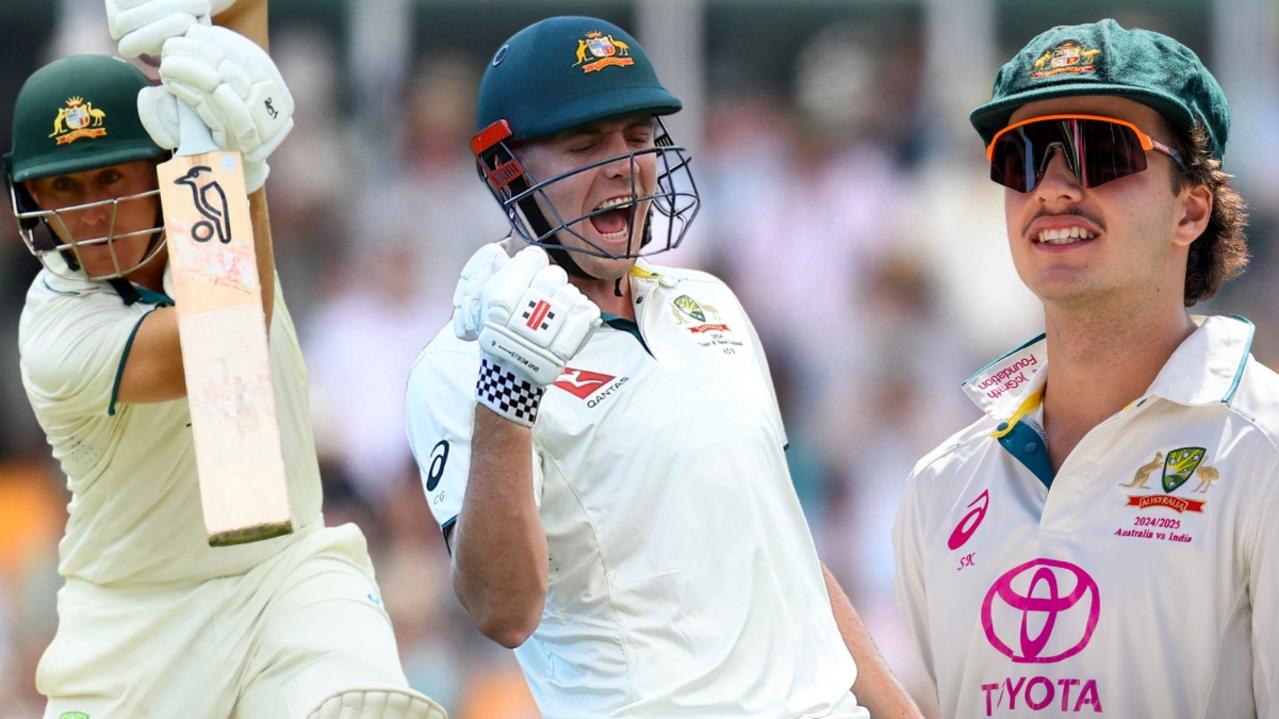Cricket World Cup 2015: Ian Chappell explains why South Africa aren’t ‘chokers’
THE term ‘choker’ is an extremely derogatory sporting term and shouldn’t be used to describe the demise of an individual or team, writes Ian Chappell.
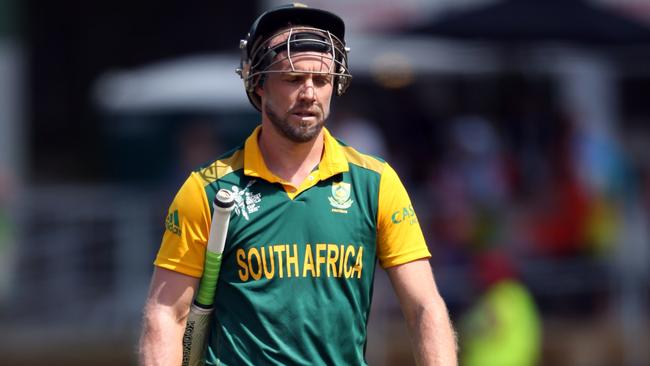
Cricket World Cup
Don't miss out on the headlines from Cricket World Cup. Followed categories will be added to My News.
CHOKER is a term that should be used solely to describe the leash used to restrain excitable dogs.
It’s an extremely derogatory sporting term and shouldn’t be used to describe the demise of an individual or a team. What really riles me is when the term is bandied about by a writer/presenter who has never played sport at the highest level.
The two most prominent examples of a team and an individual attracting this epithet regularly are the South African cricket squad and Australian golfer Greg Norman.
In the case of the South African cricket team, their many World Cup misadventures — the 1999 semi-final run out fiasco against Australia and miscalculation of the par score against Sri Lanka in 2003 — have led people to suggest they can’t handle the pressure.
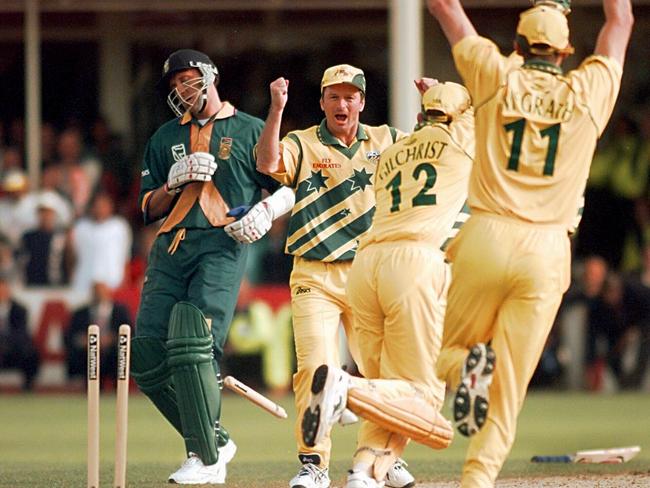
South Africa haven’t helped their cause by failing to reach the final of the World Cup in any of their six attempts since returning to the international fold in 1992.
South Africa’s problem is more tactical than nerves. In the case of Allan Donald’s run out at Edgbaston, it was a simple lack of communication; why he didn’t confer with partner Lance Klusener, who was creaming boundaries regularly and surely would have beaten the field from one of the two remaining deliveries, is hard to comprehend.
However, South Africa’s main failing is their ploy of trying to choke off runs, rather than provoke errors from the opposition.
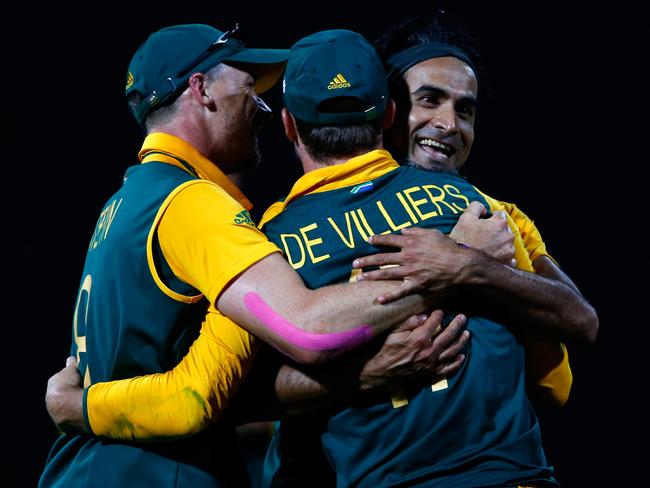
This tactic of waiting for the opposition to make mistakes works well against lesser teams and that is when South Africa are dominant; winning in the round robin stages of the World Cup.
When it comes to the knockout stage and playing against better teams, this tactic is not so successful; hence South Africa regularly fall short of expectations.
Throughout his illustrious career Norman may have been guilty of mental misjudgements, but too often he was able to play unbelievable shots in dire situations to accuse him of succumbing to nerves.
Former British Open champion Peter Thomson believed Norman’s problem was not having a repeatable rhythm to fall back on when he was under pressure.
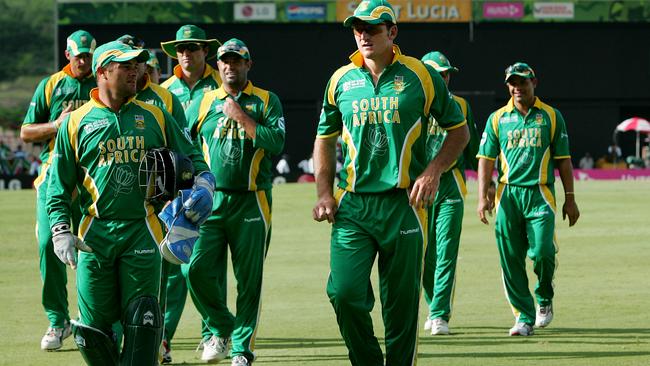
According to Thomson, anything that upset his equilibrium (his own poor shot or an opponents’ brilliance) caused him to rush and make mistakes.
Thomson, who had a fluid rhythm to his swing, said Norman’s method was more like that of an archer — “he took aim, drew the string and let fly”.
Being an individual game, golfers are more susceptible to observations about their temperament. In a team, the braver members can camouflage the shortcomings of those who are more timid in nature.
A very successful Australian cricket team won three World Cups on the trot from 1999 to 2007. It helped that they had players of great skill, but it didn’t hurt that Shane Warne, Glenn McGrath, Ricky Ponting and Adam Gilchrist were the types who revelled in the big occasion.
Warne and McGrath both wanted the ball when the heat was on, while Ponting and Gilchrist batted at or near the top of the order and set the pattern for teammates to follow.
Contrast that with South Africa.
I was interested to witness their behaviour before the opening game of the 2003 World Cup campaign at the Wanderers ground. It was against a stronger West Indies back then and captain Shaun Pollock gathered his team in a rugby scrum on the field. The players were hanging on to each other’s shirts so tightly it appeared the material would burst at the seams.
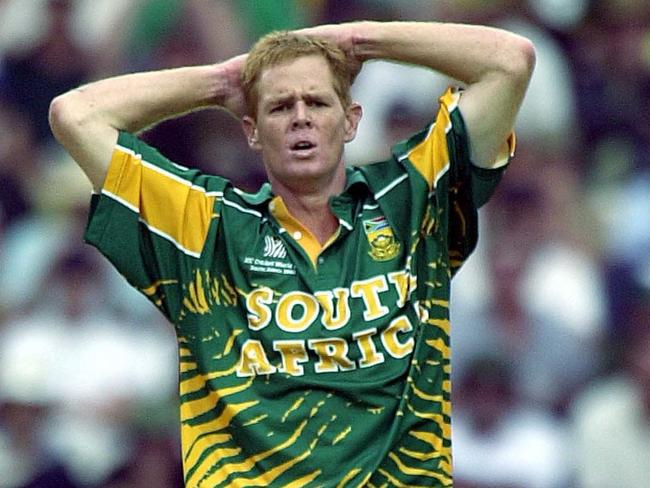
It was supposed to be a show of strength but it was more like a disclosure of tension. Brian Lara made a brilliant century, the West Indies won and South Africa meekly departed the tournament without reaching the knockout stage on the back of a miscalculation of a Duckworth Lewis target.
It was a mistake that could only have been brought on by tension causing the brain to go blank.
In a contest between two teams of equal strength, the side that thinks the best for the longest generally wins.
South Africa tend more to the conservative end of the scale, particularly when Graeme Smith was captain and hence their consistent premature departures from the tournament.
This time they are led by AB de Villiers, who is an ultra-aggressive batsman.
It doesn’t always apply that an aggressive player is a similar style of leader but de Villiers has the chance to change South Africa’s approach at this World Cup.

